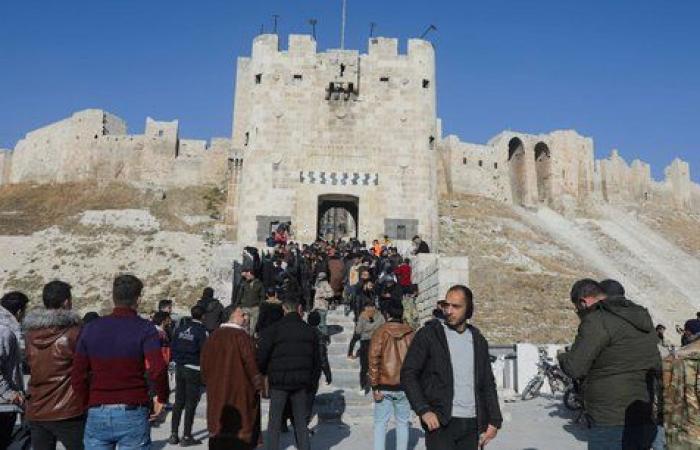After five years of lulls, a coalition of rebels, led by the jihadists of Hayat al-Sham (HTS), an emanation of the former Syrian branch of Al-Qaeda, with which they officially broke, managed to seize on Saturday afternoon the airport of Aleppo, the country's second city, as well as large parts of the city itself.
Syrian troops and their allies, notably militias linked to the Iranian Revolutionary Guards, preferred to leave the city in the face of this apparently unforeseen offensive. The fighting left more than 320 people dead, according to the Syrian Observatory for Human Rights (OSDH), in a grim count reminiscent of the worst hours of the civil war in Syria.
The rebels said Saturday that their fighters had advanced in multiple directions from their stronghold in Syria's northwest Idlib province and had taken control of several dozen towns and a regime air base. Images posted on opposition-linked social media show rebel forces, who launched their offensive on Wednesday, posing in front of the Aleppo citadel, located in the heart of the city.
Devastating effect
This assault takes place in a very specific context. First of all, the rebels took advantage of a weakening of Bashar Assad's allies, notably Lebanese Hezbollah and Iran, following the war waged by Israel against Palestinian Hamas and Hezbollah since October 7, 2023. The forces Israeli forces have repeatedly targeted militia bases allied to Iran to prevent the Revolutionary Guards from delivering weapons to Hezbollah or Hamas.
The Israeli army also declared that it had struck military infrastructures linked to Hezbollah in Syria, near the Lebanese border, on Saturday. Remember that the Syrian president was able to quell the rebellion thanks to military support from Russia and Iran or militias financed by Iran, such as Hezbollah.
Added to this is the fact that the efforts undertaken by Turkish President Recep Ergodan to get closer to Bashar Assad have led to nothing so far. However, Turkey sponsors numerous Syrian armed groups in the North and controls access to areas held by the HTS. Finally, the populations of the Irbid region, controlled by the HTS, were beginning to tire of the incessant attacks, particularly by drones, by the regime's forces, in a sort of latent guerrilla warfare to wear out their patience. It is also a strategy inspired by the Russian forces present in the country.
This offensive is a devastating blow for Bashar Assad, which highlights the weakness of the regime and its inability to regain control of his country almost fifteen years after the start of the civil war, which left nearly 500,000 dead, among a population of less than 20 million inhabitants. It is also a hard blow for Iran and its ally Hezbollah, which shows their war of attrition against Israel has clearly undermined their military capabilities in the region.
Finally, this is not good news for Moscow, which will be forced to divert part of its war effort against Ukraine to Syria. This is all the more a bad move since HTS has apparently been planning its offensive for months, with factions supported by Turkey.






